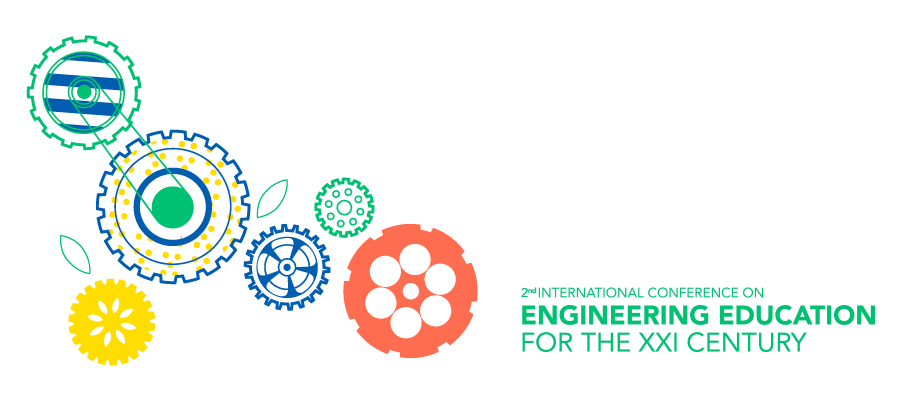
On behalf of the organizing committee, we are honored to invite you to the SECOND INTERNATIONAL CONFERENCE ON ENGINEERING EDUCATION FOR THE TWENTY-FIRST CENTURY, to be held in Bilbao (Spain) on 4 and 5 July 2019.
The conference is co-organized by the University of the Basque Country (UPV-EHU) and the Universitat Jaume I in Castelló (UJI) and continues the debate started two years ago in Castelló de la Plana, where the central theme of the conference was “New Competences in the Area of Sustainability and University Social Responsibility”. The central theme of this second international conference is “Engineering Education towards Sustainability: Approaches for Institutionalization and Teaching Implementation”.
In a world deluged by social realities, change is an absolute necessity. Such change has found its way to European Higher Education Area, affected teaching objectives, pedagogies, and knowledge transmission. With the mission to help learners to create their capability profiles, this change visualizes graduates who can be absorbed easily by ever-evolving industries. To this aim, new active learning methodologies and Information and Communication Technologies (ICT) have been introduced and applied. These changes started to appear in classrooms in the era that also fosters social values such as Sustainable Development Goals and Conscious Social Responsibilities more than ever, striving to build an equitable world.
Education in such a time then becomes a multifaceted and complex phenomenon. Therefore, constant communication and continuous reflection on needs, challenges, and interventions from practitioners, educators, and industry representatives seem necessary. We believe localized and contextualized experiences that shaped by specific academic cultures and education systems equip us better in meeting the urgent demands of this century.
This second conference is structured in six blocks: it will keep the five sessions set in the former edition but preceded by a debate on the sustainability and institutionalization models for the university system:
- Institutional leadership towards education for sustainability
- Service-learning and social commitment in engineering
- Engineering and development co-operation
- Environmental sustainability
- Corporate and business social responsibility
- Engineering and gender/diversity
During the first session of the conference, we invite you all to discover and share the different ongoing approaches in institutionalization of sustainability in university contexts. For so, delegates from national and international academic institutions, who are recognized for their work in the development of programs and strategies to implement sustainability objectives in their institutions, are invited to share their insights. The experts will gather at round tables for presentations, debates, and deliberations about different strategies.
The second part of the conference consists of specific sessions aiming at disclosing the best way to address competencies associated with sustainability. In each session, we will focus on one of the five proposed issues. We will work from strategies of educational innovation applied to engineering studies and listen to colleagues who are implementing different aspects of Social Responsibility and Sustainability in the curricula of graduate and postgraduate engineering studies. The contributions are but not limited to the creation of theoretical frameworks, guidelines for research in engineering education, implementation sustainability objectives in higher education institutions, application of new methodologies in the classroom, presentation of teaching experiences and other activities related to education in engineering.
Each session invites lectures and leading experts from universities and institutions with relevant experience in framing sustainability objectives. The contributions of researchers who already work in this direction are expected to serve as inspiration as well as illustrative examples.
Communications will be in the form of oral presentations, poster presentations, and virtual presentations. Each session will embrace several selected oral and virtual presentations followed by a workshop consisting of poster teaser presentations and debates.
The conference will be live-streamed for whom wish to participate but cannot attend in person.
The organizing committee looks forward to welcoming you all to a fruitful conference with open discussions and important networking to promote high quality education.
On behalf of the organizing committee,
Teresa Guraya Diez (UPV/EHU), co-chair
Luis Cabedo Mas (UJI), co-chair
